A Conversation with Tulsi Sigdel, Base Team Delegate for the 3rd World March
The World March for Peace and Nonviolence came to Nepal in 2009, 2019 and, lately in 2024, bringing its message of humanizing the earth by ending all wars and armed conflicts and addressing all forms of
violence—be it physical, economic, sexual, psychological, racial, religious, domestic, etc. By doing so,
this message will help the vision of humanizing the earth become a reality—the world being a place
where all human beings, regardless of age, sex, social class or nationality, can have a decent and
dignified life, where everyone can enjoy equal opportunities to live a life free of pain and suffering, for
being born as a human being on planet Earth.
The first World March in Nepal in 2009 was unique. Its purpose was to promote activities related to
humanizing the earth. After being involved in the first, second, and third World Marches in Nepal, this
time, Nepalis received something very new: a core to develop sustainable changes forward.
Summarising the three visits of the World March for Peace and Nonviolence in Nepal:
1st World March (2009): To raise a voice against nuclear arms and the use of any weapons.
2nd World March (2020): To learn something more deeply to foster societal change. With the incipient
COVID pandemic, society gave them a new learning opportunity. The proposal of humanists was not to
forget the place of humanity’s culture and its natural habitat. Don’t support people making nuclear arms
weapons and generating economic, racial, or any other form of violence.
3rd World March (2024): This World March was far more effective and inclusive than the previous two.
Nepali Humanists are now in a different stage of development; they have established partnerships with
some local governments and universities. Plans to work together and contribute to the development of
peace and nonviolent actions were agreed upon.
These are the Budhanilkantha Municipality of Kathmandu and the Banepa Municipality of
Kavrepalanchwok. The two districts’ Mayors signed a Memorandum of Understanding (MOU) with
World Without Wars and Violence. Additionally, they signed a request to the Nepali government to
ratify the ICAN Treaty of Non-proliferation of Nuclear Weapons.
The 3rd World March Base team in the Budhanilkantha Municipality of Kathmandu signing the MOU with the District Mayor…

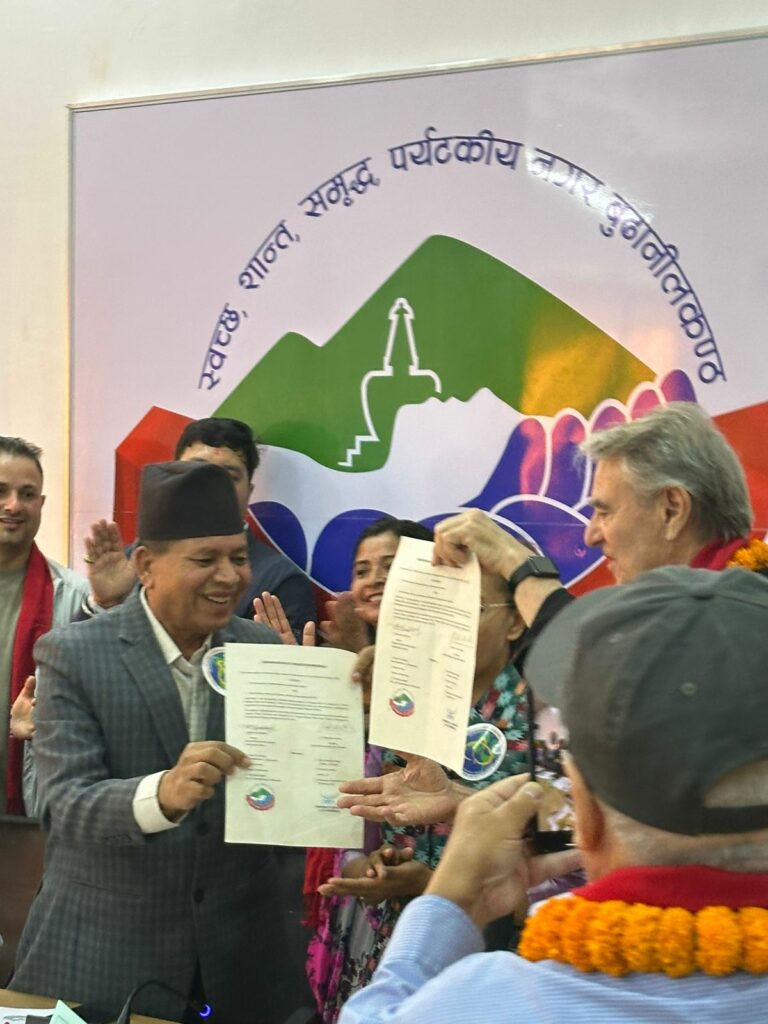
The 3rd World March Base Team in the Banepa Municipality of Kavrepalanchwok signing the MOU with the District Mayor…
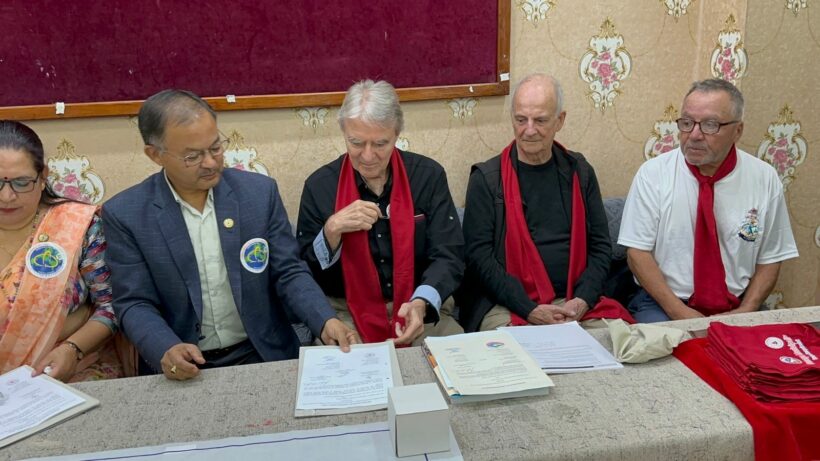
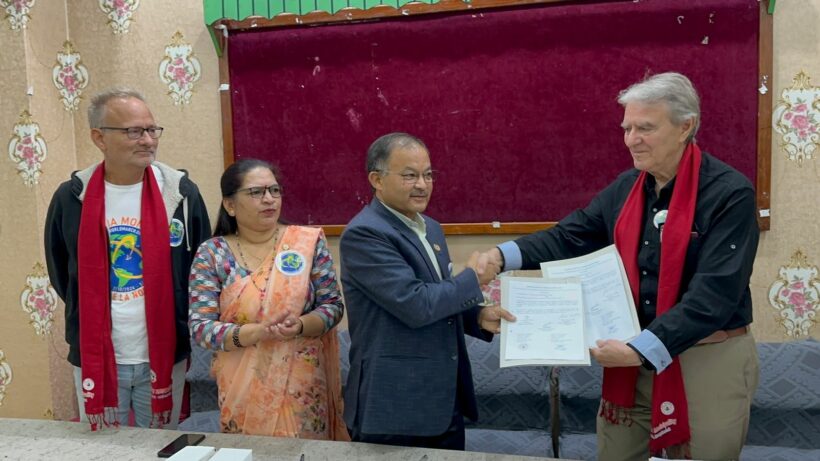
Very soon, during the upcoming year, an MOU and a treaty in three additional municipalities, Dhulikhel,
Panauti, and Tokha, may be established.
On the other hand, Kathmandu University indicated its commitment to working together for Peace and Nonviolence, and Tribhuvan University has already made clear its support in the same positive direction.
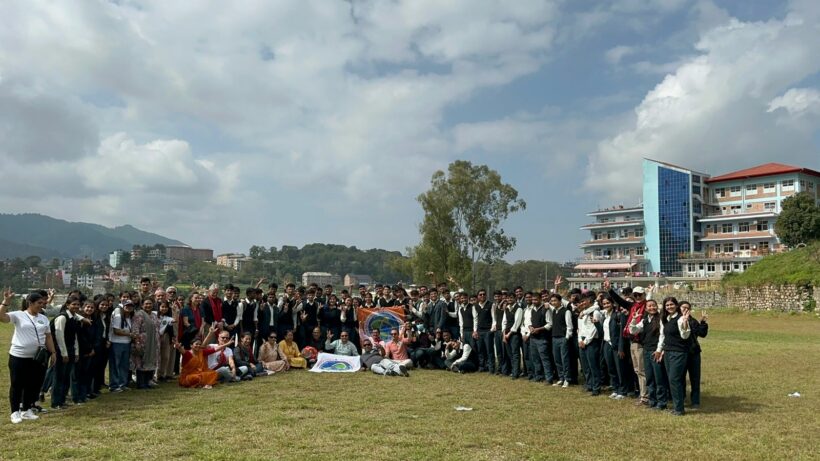 The 3rd World March at the Kathmandu University.
The 3rd World March at the Kathmandu University.
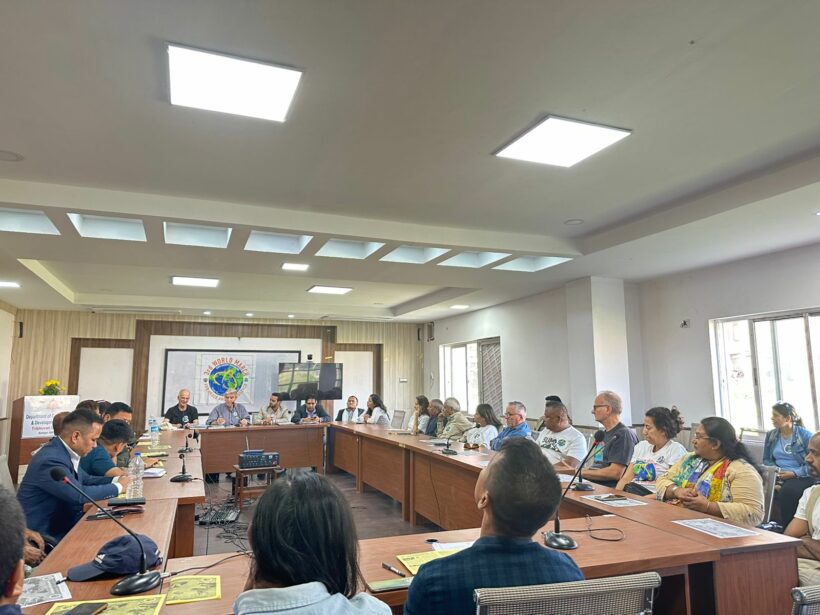
The 3rd World March at the Tribhuvan University.
As a next step, humanists will contact other universities in Nepal to explore working with the “Zero
Violence mindset” workshops, which have been used already in India. This will be one important focus
for Nepali humanists and non-violence activists.
A small delegation of Nepali humanists, accompanying the Base Team for the 3rd World March visited
different universities in Pakistan (Karachi and Lahore), and India (Kannur, Kerala). They had the
opportunity to establish a dialogue with the students. The delegation, which included the UK, Spain,
and Italy, realized that students and media from all these countries (Nepal, Pakistan, and India) wanted
to learn more about the world’s current situation.
Students showed concern by asking how to prevent what is happening in Ukraine and the Middle East.
They wondered what the 3WM was doing in these situations. As an observer in those countries, Tulsi
Sigdel, World March Base Team member, in this way, long-time Nepali Humanist, and peace activist,
indicated that, in her opinion, an explanation perhaps could be found by going back 30 or more years in
the history of those places. In this way, she continued, we would understand more about the roots of
this type of violence, reflect, and apply that to act now, and in the immediate and long term, use our
concern for humanity to produce sustainable actions directed to modify behaviors to eliminate
violence of all kinds and prevent these horrible tragedies going on in the world from happening ever
again.
In a way, she expressed her commitment to working for a better future, considering current world issues
but acting now to prevent them from happening again. After being involved in this third World March,
she believed that the proper way would be to work with university students and young people to sow
the seeds of a future where violence would be eradicated and people could live one day in peace.
Nepali humanists hope to implement this proposal by collaborating with University partners in Nepal,
Bangladesh, Nepal, and India for a proposed Asia/Pacific regional encounter.
Ms Sigdel expressed that due to the 3rd World March visit, she reinforced her commitment to
Humanizing the Earth through Peace and Nonviolence education was indeed the way forward. She also added that in the way of building relationships between Asia/Pacific and different countries, she was
“so proud that with all the base team members (friends) from Australia, Italy, the UK, Nepal, Sri Lanka,
the Philippines, Spain, Bangladesh, and India, have altogether contributed to make the World March in
Asia/Pacific event grand”. She added that personally, all and each individual “matter highly” and that she appreciated everybody from the bottom of her “heart for their time and concern for this noble and
dignifying cause”.
In particular, she thanked her Pakistani friends and the people of Pakistan for their warm welcome—
“The way they hosted us and gave us the opportunities to learn their culture in a way that allowed us to understand from a closer perspective that we are all just the same: human beings.”
About Tulsi Sigdel:

Social activist and long-time Nepalese humanist, working to humanize Nepal, the earth.
